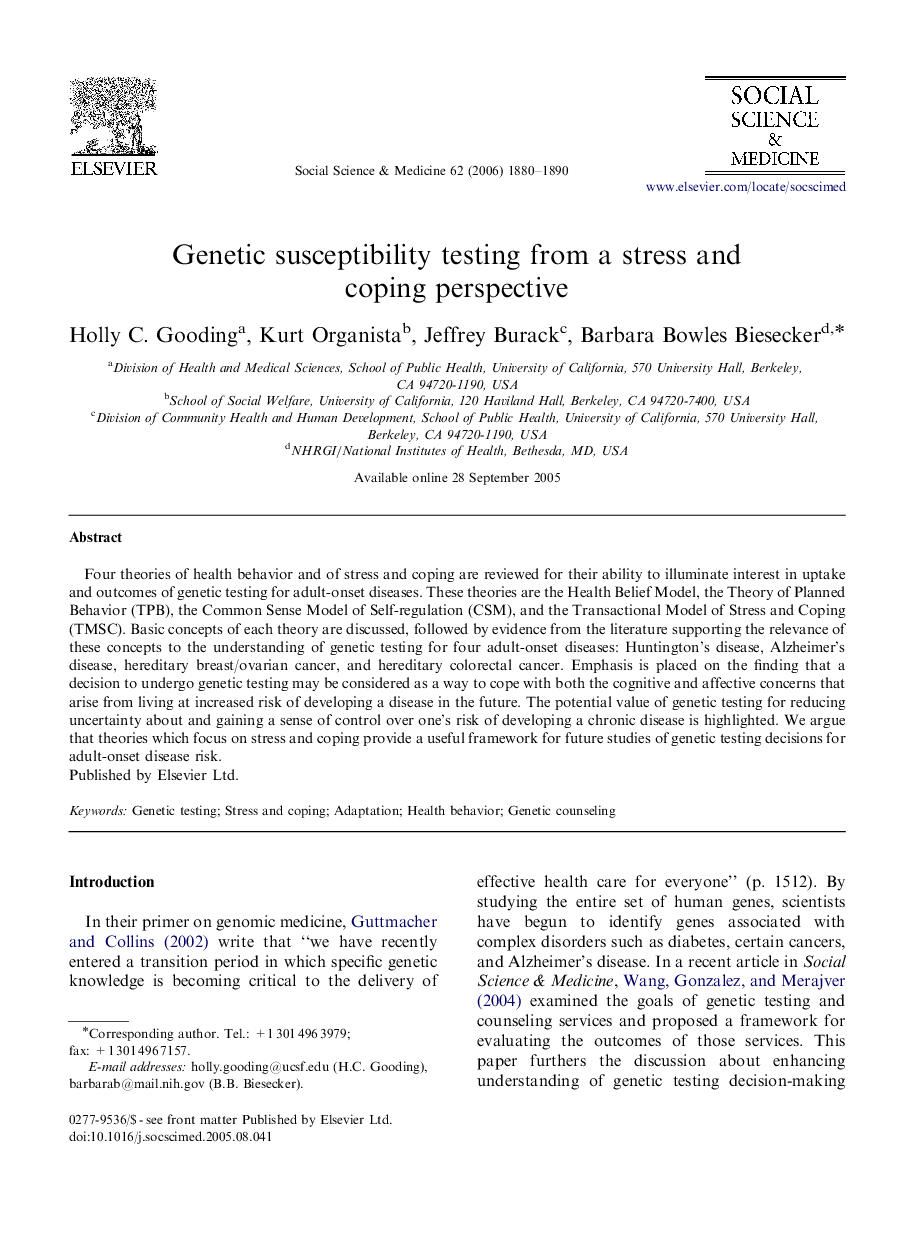| کد مقاله | کد نشریه | سال انتشار | مقاله انگلیسی | نسخه تمام متن |
|---|---|---|---|---|
| 954478 | 927647 | 2006 | 11 صفحه PDF | دانلود رایگان |

Four theories of health behavior and of stress and coping are reviewed for their ability to illuminate interest in uptake and outcomes of genetic testing for adult-onset diseases. These theories are the Health Belief Model, the Theory of Planned Behavior (TPB), the Common Sense Model of Self-regulation (CSM), and the Transactional Model of Stress and Coping (TMSC). Basic concepts of each theory are discussed, followed by evidence from the literature supporting the relevance of these concepts to the understanding of genetic testing for four adult-onset diseases: Huntington's disease, Alzheimer's disease, hereditary breast/ovarian cancer, and hereditary colorectal cancer. Emphasis is placed on the finding that a decision to undergo genetic testing may be considered as a way to cope with both the cognitive and affective concerns that arise from living at increased risk of developing a disease in the future. The potential value of genetic testing for reducing uncertainty about and gaining a sense of control over one's risk of developing a chronic disease is highlighted. We argue that theories which focus on stress and coping provide a useful framework for future studies of genetic testing decisions for adult-onset disease risk.
Journal: Social Science & Medicine - Volume 62, Issue 8, April 2006, Pages 1880–1890